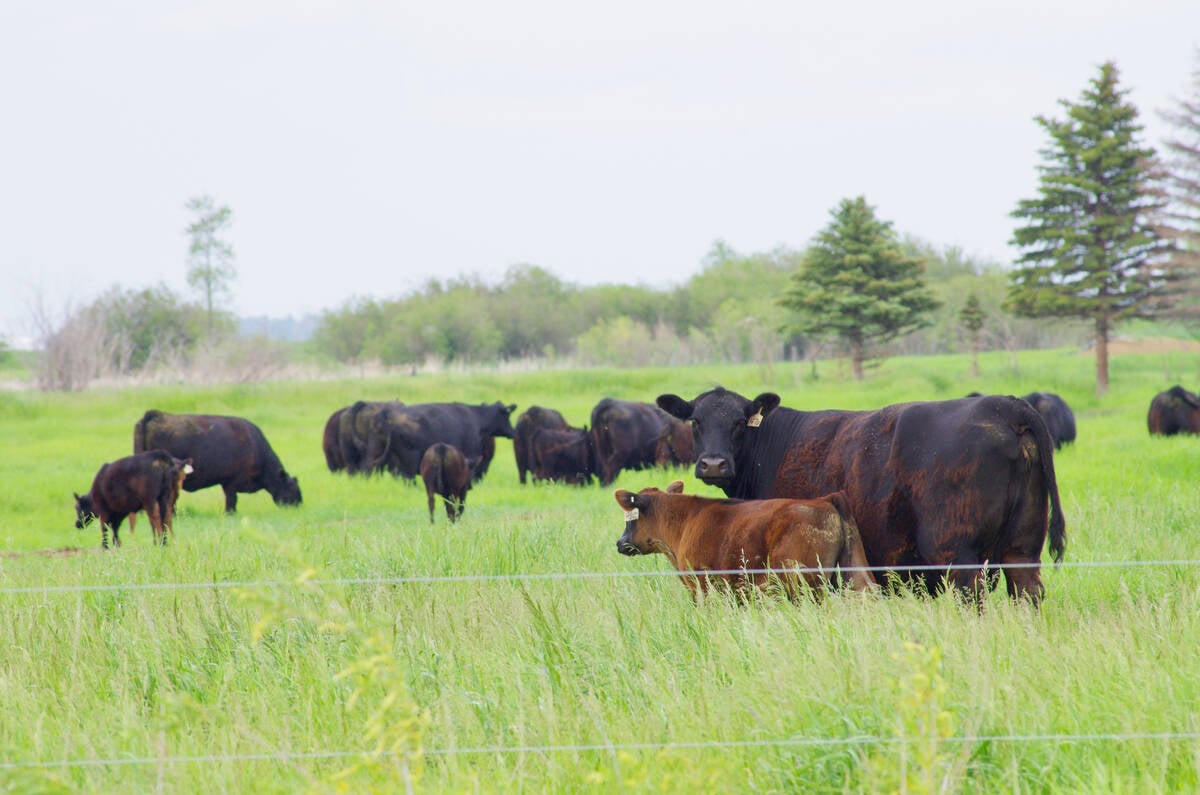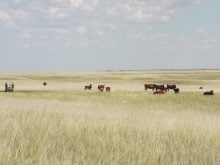Merle Olson likes to joke that his retirement project has gotten out of hand.
The former veterinarian and ex-University of Calgary scientist is the vice-president of research and development at Alberta Veterinary Laboratories Ltd. (AVL)/Solvet, a family business he helped found in 2004.
It has received a federal Good Manufacturing Practice Drug Establishment Licence from Health Canada, marking the latest milestone in the growth of the Calgary-based company.
The firm recently expanded by moving to a new facility in the city. The licence allows it to continue to make, test and distribute veterinary drugs aimed at helping producers by protecting and improving the health of their livestock.
Read Also

Tick research from the University of Manitoba focuses on insects and testing
Manitoba researchers are looking into the effects of tick and fly disease in cattle.
“And we’re probably the only veterinary pharmacy company in Canada that actually develops products right here in Canada to be used in Canada and internationally,” said Olson.
The company is helping ensure the country’s farmers and ranchers get the veterinary drugs they need during the COVID-19 pandemic, he said.
The crisis has disrupted international drug supply chains relied on by the agriculture industry, revealing shortcomings similar to that of Canada’s lack of manufacturing capacity to make its own human vaccines to fight the virus.
Olson pointed to ivermectin, a chemical used in a pour-on treatment for cattle parasites. It was largely supplied by companies based in the United States and Europe, he said.
“And when COVID happened… we ended up supplying all of the Canadian needs.”
Isopropyl alcohol is a key component in the manufacture or formulation of the product, he said. “All the isopropyl alcohol in the world went to making hand sanitizers, but we were able to secure enough isopropyl alcohol to make sure we have that product for cattle.”
The company had to obtain financial loans to pay for the many tonnes it needed to make the product, he said. If it hadn’t undertaken such efforts, there would currently be no such treatments available for parasite control in Canada, he added.
It’s an example of how the manufacturing licence from Health Canada will help secure the future pharmaceutical needs of the country’s farmers and ranchers, said Olson.
“And they need these drugs to produce the animals that they need. They need some way to protect their business, because COVID has shown they may not be protected, that products may not be available, so having a Canadian manufacturer really does help protect that.”
The licence is also an important step in helping ensure Canada’s food security, and not only because it helps promote the health and productivity of farm animals eaten by consumers, he said.
“The rules are very strict on how we manufacture (drugs), and so it’s going to make sure that we’re getting the highest quality of veterinary pharmaceuticals to the animals, which then also again protects the humans because the humans have consumed the livestock, to make sure there’s no drug residues in their products.”
Because the company is located in Western Canada, the licence will also help lower prices for veterinary drugs by reducing transportation costs, he said.
As someone who grew up on a mixed grain and cattle farm in the Radville/Ceylon area south of Regina, Olson has a first-hand understanding of what producers need.
He was a veterinarian in the Pincher Creek area of Alberta from 1981 to 1984, when he became a scientist at the University of Calgary’s Faculty of Medicine, now the Cumming School of Medicine.
He did gastrointestinal research for 20 years in both animal and human diseases, largely focusing on parasitic illnesses. AVL/Solvet is his retirement project, “which seems to have gotten out of hand,” he said, laughing.
The company currently does about $10 million in sales per year in a Canadian market that has traditionally been dominated by international competitors, said Olson. It employs more than 50 people, up from four in 2006.
His wife, Barbara, who has a PhD in physiology, is co-owner and vice-president of quality and regulatory affairs, and two of their sons are also involved in the operation. The family is now in full control of the company after recently buying out a partner.
The expansion of the company to a new facility in Calgary is vital to its future, said Olson. Although it currently makes about 30 different drugs, which it sells under the AVL and Solvet product lines, “we have registration for over 40 drugs, and so now we can make all 40 of them,” he said.
A key part of the company’s plans is its ongoing research to develop new products. It runs clinical trials across Canada involving cattle and pigs, he said.
One of the firm’s primary focuses is drugs for humane pain management for cattle following farming practices such as castration.
It is also looking at developing natural remedies to reduce the use of antibiotic drugs for things such as diarrhea in calves. Those will help avoid the evolution of microbial resistance to such drugs, which can result in illnesses in humans as well as animals that are much harder to treat, said Olson.
Canada is not recognized as being a competitive country in the international veterinary pharmaceutical industry, something Olson hopes to change. But he understands he has Canadian producers to thank for his company’s success.
“I mean, everybody is going to be a winner when we help support each other, and that’s what we’re doing. We’re here to help support them, and I’m really glad that they’re helping to support us.”


















